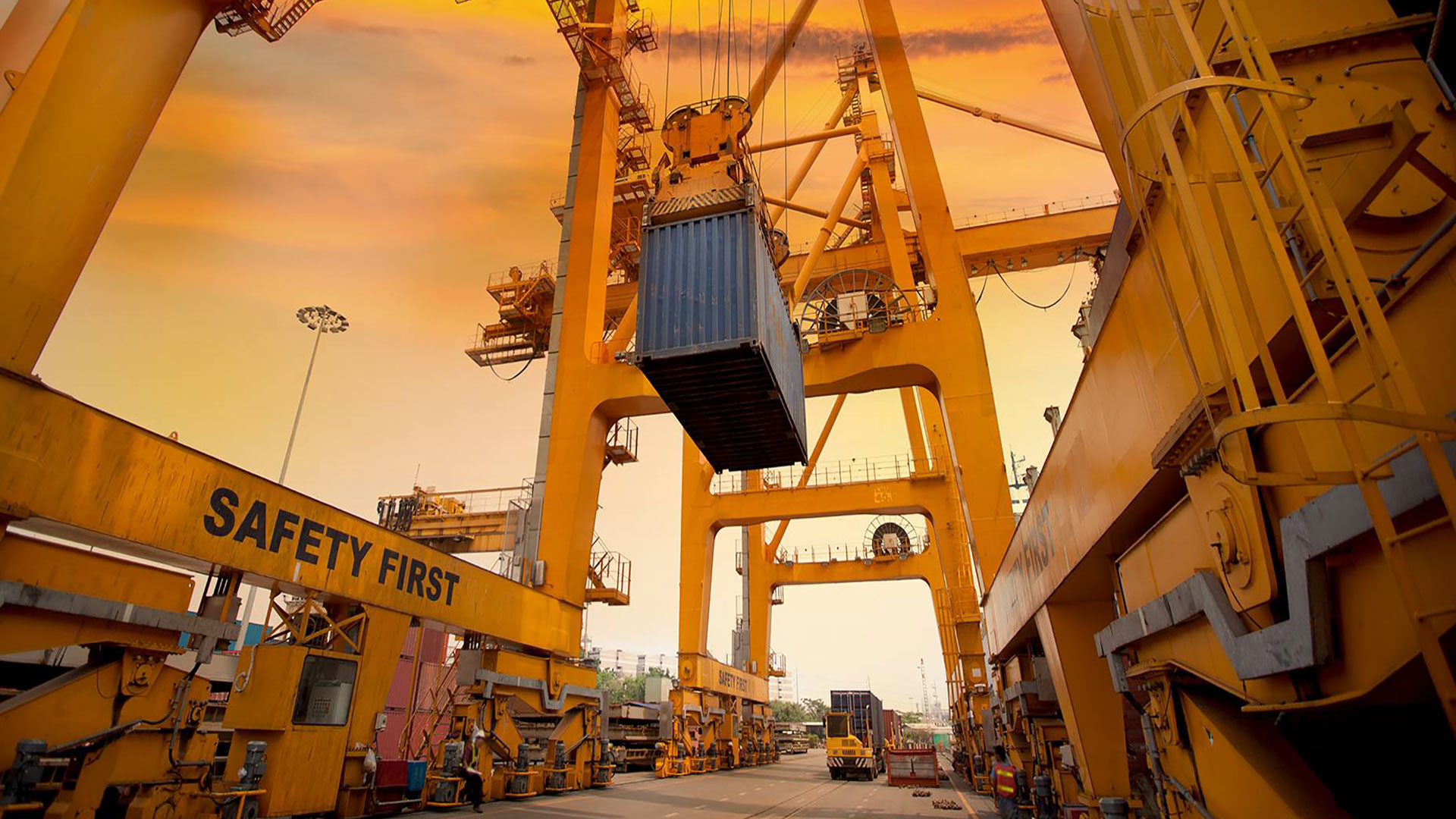Efficient terminal process and management
Cargo terminals rely on staff, process and technology working together to provide effective service. These areas are a constant focus for improvement and refinement, removing waste from processes and engaging data metrics to drive up productivity.

The Smart Ports team lead and support clients to create efficiencies in all aspects of their operations. We have the capabilities, tools and techniques to identify areas for improvement and can apply our knowledge to develop rationalized systems and processes to create efficiencies in how clients operate and manage your container, general cargo, automotive or dry bulk terminal.
We actively engage with each client to analyse, evaluate and monitor their local operations within the context of the port. This approach allows our clients to manage, monitor and report on their performance across their operations, working with useful and focused performance indicators.
We actively engage with each client to analyse, evaluate and monitor their local operations within the context of the port. This approach allows our clients to manage, monitor and report on their performance across their operations, working with useful and focused performance indicators.
Business Process Modelling
Business Process Modelling (BPM) is a key task for any terminal optimisation or technology project; to know the current starting methods for key activities in detail, then being able to define improvements for future streamlined processes.We use onsite workshops to capture the detail of all current processes (the As-Is process model) from segments of the terminal operation, including human actors (staff & clients), equipment and cargo handling movements, and all data flows and system interactions. This will be drawn up in a graphical form to feed into development workshops for improved processes.
Our team will shape new practices for the terminal to incorporate technology and digital tools to automate or streamline practices, forming the basis for requirements design for relevant new enterprise software, and feeding into organisational change and investment business cases for the project. These new processes (To-Be process model) can be hosted within a digital platform for use as a foundation for developing work instructions, standard operating procedures and staff training programmes. These can also be used to translate into automated testing routines for software acceptance testing, which is particularly important for process and equipment automation in terminals.
Performance Audits and Technology Integration
With our in-depth knowledge of the terminal operating environment, we have the capabilities to provide a comprehensive operational audit of a terminal’s current operations. These can be delivered as performance audits of the entire terminal operation, or as specific audits related to areas of concern, such as safety risk, yard congestion or poor productivity.We have extensive global experience and understand the intricacies of regional demands, methods of operation and the importance of local labour and regulatory conditions. We can improve performance and efficiency by conducting a detailed analysis of the terminal operations and technology ecosystem. Beyond the BPM practice, we can apply further detail to examine data configuration structures, exchange of workflow information and user interaction with key terminal systems, such as Terminal Operating System (TOS), Gate Operating System (GOS) and supporting corporate tools from ERP and Finance through to Access Control Systems (ACS) and Port Community Systems (PCS) and out to customers with reporting and EDI. Managing integration and data exchange between all these systems within a terminal is a critical factor for productive and resilience operations, and often present opportunities for automation and improvement for cargo terminals of all types. Our team can design integration strategies for existing and new terminals, where the benefits of terminal technology are important to capture.
Container Terminal Planning Improvements
Optimising the operating area and functions of the yard is critical to ensuring efficient operations are sustainable. The design and usage of container yard areas is important for terminals productivity and cost management. Terminals are not always suitably designed for changes to cargo and customer demands, or as equipment and systems are upgraded. Bottlenecks and inefficiencies can be created as these changes and advancements occur, so it is vital to assess and analyse terminal layouts, vehicle routing and peak traffic patterns, to update layouts if necessary.Yard planning strategies are key to maintaining an efficient yard and to facilitate shipside productivity, minimise unproductive moves (shifts) and excess travel of equipment (CHE) within the terminal. We can advise on using standard yard strategy layouts for the specific cargo mix at the terminal, and the tuning of penalty-algorithm driven yard planning tools that are available in some TOS solutions.
Vessel planning is both art and science, with TOS tools supporting the planner in creating vessel loading plans and yard sequences. Our team can advise and support vessel planning in all aspects, from manifest & BAPLIE, through rotation planning, crane split strategy and equipment workload balancing with terminal yard block sequencing.
Our team of experts can use most major TOS tools to support configuration and training for terminal staff in managing planning and operations effectively to deliver improved productivity.
